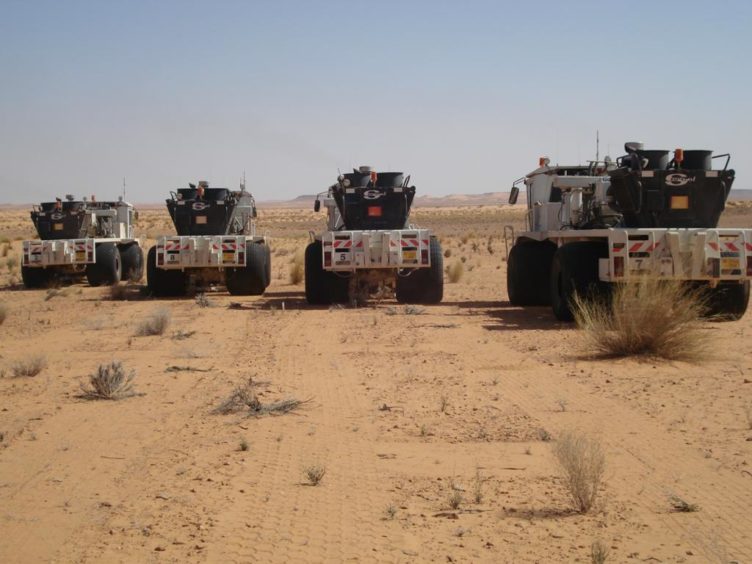
The Libyan National Army (LNA) has suffered major setbacks in its attacks on Tripoli, home of the Government of National Accord (GNA).
The military reversal suffered by the LNA seems to have been linked to the decision by Russian forces to withdraw their support from the siege of Tripoli. The LNA and General Khalifa Haftar have been linked to support from Russia, the United Arab Emirates and Egypt.
According to GNA reports, a Russian military plane evacuated Wagner Group mercenaries from Bani Walid, around 180 km southeast of Tripoli, on May 25. Reuters reported that the Russian fighters were flown to Jufra, in the centre of the country.
“A military occupation of Tripoli now looks close to nil, but it was look increasingly unlikely from the start of the year when Turkey became involved,” Verisk Maplecroft’s North Africa analyst Hamish Kinnear told Energy Voice.
The Russian mercenaries have been pulled back to the east in order to prevent further collapse of the LNA, he continued. A number of MiG-29 jets have been reported at Al Jufra airbase, presumably supplied by Russia. These military forces “will most likely be to shore up the LNA in the east as opposed to supporting the resumption of the Tripoli offensive”, Kinnear said.
“There may well be a de facto partition [of Libya], of the GNA holding the west and LNA the east, of not so much a ceasefire as a stalemate. A political solution would need some form of Islamist participation in government and the LNA and its backers (particularly the UAE) won’t accept this,” Verisk Maplecroft’s analyst said.
“Haftar’s position is more tenuous than it was, but he’s easy to underestimate and he will not willingly step aside for civilian authorities. He’s down, but he’s not out.”
Amid this stalemate, the LNA’s hold on the oil crescent will remain and oil flows are unlikely to resume without major changes.
There is scope for the GNA to restart production from Sharara and El Feel, though, with these oilfields lying far to the south of Tripoli. “The GNA holds Zawiyah and there are negotiations on reopening the closed pipelines. Those fields only account for 25% of Libyan output but there’s a possibility for movement,” Kinnear said.
Russia’s role
The US State Department held a special briefing in early May focusing on Russia’s “malign engagement” with a special focus on Libya and Syria.
Russia has provided military support for the LNA via the Wagner Group, the US said. This support has led the conflict to escalate and worsen the humanitarian situation, US deputy assistant secretary Christopher Robinson said.
“Wagner is often misleadingly referred to as a Russian private military company, but in fact it’s an instrument of the Russian Government which the Kremlin uses as a low-cost and low-risk instrument to advance its goals,” Robinson said, noting that it had also been involved in the transportation of Syrian fighters to Libya to support Wagner’s involvement with the LNA.
Russia’s aim in Libya is to “expand its influence across the Med and also onto the African continent”, another US official said. The US has blamed Russian mercenaries with shooting down one of its drones in November 2019.
Moscow disagreed with the US assessment of its actions. Russia, foreign ministry spokesperson Maria Zakharova said, had taken “energetic steps to normalise the situation both within the multilateral formats under UN auspices and on a bilateral basis”.
One notable aspect of Russia’s approach to Libya is how it has engaged diplomatically with regional powers. In mid-May, Russian President Vladimir Putin talked to Turkish President Recep Tayyip Erdogan. The foreign ministers of the two countries held talks on May 20.
The talks between the two sides focused on Libya and Syria.
Russian Deputy Foreign Minister Mikhail Bogdanov spoke to Italy’s ambassador Pasquale Terracciano in Moscow last week about the North African state on the importance of “stopping the hostilities as soon as possible and building an inclusive intra-Libyan political process”.
Bogdanov also talked to the Qatari and Egyptian ambassadors on various issues, including Libya.
A US military report in March expressed concern about Russia securing access to bases on “NATO’s southern flank”.
